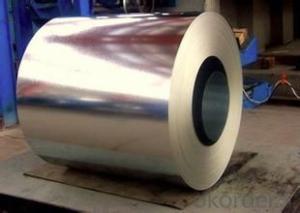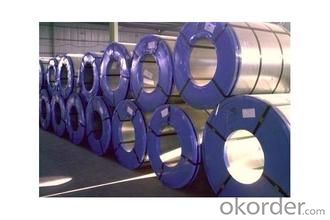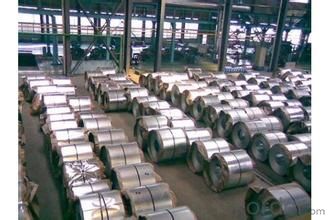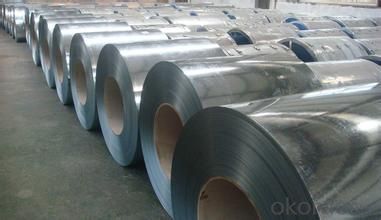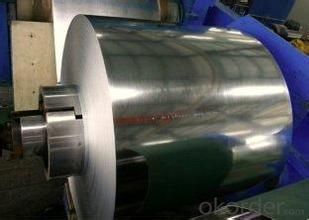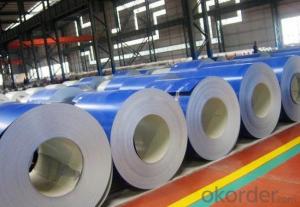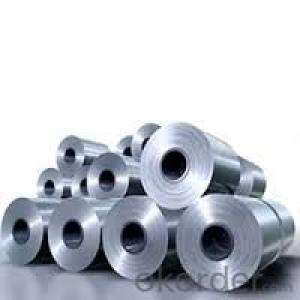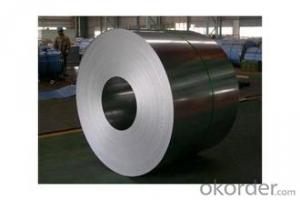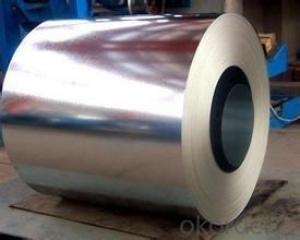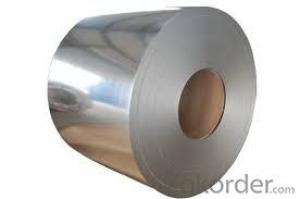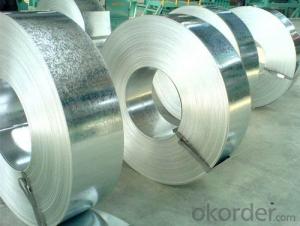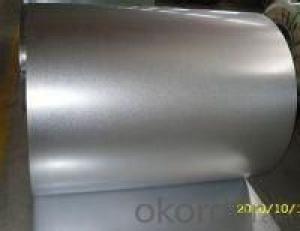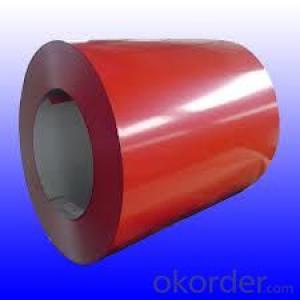Excellent Hot-Dip Galvanized/ Aluzinc Steel in China
- Loading Port:
- Tianjin
- Payment Terms:
- TT OR LC
- Min Order Qty:
- 30 m.t.
- Supply Capability:
- 5000000 m.t./month
OKorder Service Pledge
OKorder Financial Service
You Might Also Like
Hot-dip galvanized steel coils are available with a pure zinc coating through the hot-dip galvanizing process. It offers the economy, strength and formability of steel combined with the corrosion resistance of zinc. The hot-dip process is the process by which steel gets coated in layers of zinc to protect against rust. It is especially useful for countless outdoor and industrial applications.
Description:
1.Mateials:SGCC,DX51D / DX52D /S250,280GD
2.Size:width:600-1250mm(900mm,1215mm,1250mm,1000mm the most common)
thickness:0.15-2.0mm
length:1000-6000mm,as your require
3.Zinc coating :60-180g( as required)
4.Coil id:508mm
5.Coil weight: 3-5MT(as required)
6. Surface:regular/mini/zero spangle, chromated, skin pass, dry etc.
Applications of our Galvalume Coil:
Galvalume Coil widely used for roofing products, It is also the ideal base material for Prepainted Steel Coil.
1. roofing
2. gutters
3. unexposed automotive parts
4. appliances
5. furniture
6. outdoor cabinetry
We can ensure that stable quality standards are maintained, strictly meeting both market requirements and customers’ expectations. Our products enjoy an excellent reputation and have been exported to Europe, South-America, the Middle-East, Southeast-Asia, Africa and Russia etc.. We sincerely hope to establish good and long-term business relationship with your esteemed company.
- Q: Are steel coils used in the aerospace industry?
- Yes, steel coils are used in the aerospace industry.
- Q: How do steel coils contribute to the HVACR equipment industry?
- Efficient heat transfer and effective functioning of HVACR systems are crucial roles played by steel coils in the HVACR equipment industry. These coils, made of high-quality steel, are integral components of air conditioners, heat pumps, refrigerators, and boilers. Facilitating heat transfer is one of the primary functions of steel coils in HVACR equipment. Designed to efficiently transfer heat between the refrigerant and the surrounding air or water, these coils utilize a large surface area and good thermal conductivity. As a result, HVACR equipment can effectively cool or heat a given space, ensuring optimal energy efficiency and reducing operating costs in residential and commercial applications. In addition to heat transfer, steel coils contribute to the overall durability and longevity of HVACR equipment. The use of corrosion-resistant steel in these coils helps prevent damage from moisture and other environmental factors. This reliability is particularly important as HVACR systems often face harsh conditions and must operate continuously to maintain comfortable indoor environments. Furthermore, steel coils offer versatility and customization options to meet specific HVACR requirements. Manufacturers can vary the size, shape, and configuration of the coils to fit available space and optimize performance. This flexibility enables efficient integration of steel coils into different HVACR equipment, ensuring they meet the specific heating and cooling needs of diverse environments. In conclusion, steel coils are indispensable in the HVACR equipment industry. They enable efficient heat transfer, enhance durability, and offer customization options, ensuring effective functioning and energy efficiency of HVACR systems. Manufacturers can provide reliable and long-lasting solutions for heating, ventilation, air conditioning, and refrigeration needs in residential and commercial settings by incorporating high-quality steel coils into their products.
- Q: I have a steel plate 3' long x 2 wide x 3/16 thick. I have a 1/2 diameter hole with the center 3/4 from the end. Tensile strength is 38,000psi. A chain goes through the hole and is connected to a load. how does one determine how much tension the chain can have before it rips through the hole?
- oo that's a tough one. dont remember... just finished that class...sorry
- Q: What is galvanized steel coil?
- Galvanized steel coil, a type of steel, receives a layer of zinc coating to safeguard it against corrosion. The galvanization process entails immersing the steel coil in molten zinc, creating a protective layer on its surface. This layer not only prevents corrosion but also acts as a shield against scratches and other forms of damage. Due to its durability and rust resistance, galvanized steel coil finds widespread usage in industries such as construction, automotive, and manufacturing. It is commonly employed in the production of roofing materials, pipes, and automotive components, among other applications. In summary, galvanized steel coil offers a versatile and cost-effective solution for preserving the longevity and integrity of steel products.
- Q: my step father bought a big steel drum grill it has steel sheets (very thin) that go inbetween the flame and the food (closer to the flame) with that there the food will not cook, it does not get hot enough????? please help... what should we do
- that steel plate there is to try to keep the grease dripping of the food from making the grill flame up and burning the food. most all quality grills have something similar. you can take the plate out but your going to be prone to flame ups.
- Q: How are steel coils used in the manufacturing of electrical wiring?
- Steel coils are used in the manufacturing of electrical wiring as a core material for cable reinforcement. The coils provide structural strength and support to the wires, ensuring durability and resistance to external forces. Additionally, the steel coils help in maintaining proper electrical conductivity and minimize electrical losses, ensuring efficient power transmission and distribution.
- Q: What are the key factors affecting the strength of a steel coil?
- The key factors affecting the strength of a steel coil are the quality of the raw material used, the manufacturing process employed, the level of heat treatment, and the presence of any impurities or defects in the steel.
- Q: What are the different types of surface finishes for steel coils?
- There are several different types of surface finishes for steel coils, each offering its own unique properties and advantages. Some of the most common surface finishes for steel coils include: 1. Hot Rolled: This is the most basic surface finish for steel coils and is achieved by heating the steel and then rolling it to its final shape. It typically has a rough and scale-like appearance, with varying levels of surface imperfections. 2. Cold Rolled: This surface finish is achieved by further processing hot rolled steel coils through a series of cold rolling operations. Cold rolled steel has a smoother and more uniform surface compared to hot rolled steel, with improved dimensional accuracy and better surface quality. 3. Galvanized: Galvanizing is a process in which a protective layer of zinc is applied to the surface of the steel coil. This surface finish provides excellent corrosion resistance, making it ideal for outdoor applications and environments where the steel is exposed to moisture and other corrosive elements. 4. Stainless Steel: Stainless steel coils have a unique surface finish due to the presence of chromium, which forms a thin, invisible layer of oxide on the surface. This surface finish provides excellent corrosion resistance and a visually appealing appearance. 5. Electrolytically Zinc Coated: Also known as electrogalvanized, this surface finish involves the application of a thin layer of zinc to the steel coil through an electroplating process. It provides good corrosion resistance and is commonly used in applications where aesthetics are important. 6. Pre-painted: Pre-painted steel coils have a surface finish that is coated with a layer of paint or other protective coatings. This finish offers both corrosion resistance and aesthetic appeal, allowing for a wide range of colors and finishes to be applied. 7. Aluminized: Aluminized steel coils have a surface finish that is coated with a layer of aluminum-silicon alloy. This finish provides excellent heat resistance and is commonly used in applications where high temperatures are encountered, such as exhaust systems or ovens. Overall, the choice of surface finish for steel coils depends on the specific requirements of the application, including factors such as corrosion resistance, aesthetics, durability, and heat resistance.
- Q: How are steel coils used in the production of metal cabinets?
- Steel coils are an essential component in the production of metal cabinets. These coils are made from thin sheets of steel that have been wound into a tightly coiled shape. The first step in using steel coils for metal cabinet production is uncoiling them. This is done by unwinding the coil and feeding the steel sheet into a machine that cuts it to the desired length. The length of the sheet will depend on the size and dimensions of the metal cabinet being produced. Once the steel sheet has been cut, it undergoes a process called blanking. This involves cutting out the various panels and parts needed for the metal cabinet, such as the sides, top, bottom, and doors. The blanking process is typically done using a stamping press or a laser cutting machine, which ensures precision and accuracy in shaping the steel sheet. After the blanking process, the individual panels are then formed and shaped using a series of bending and forming machines. These machines apply pressure and force to the steel panels, bending them into the desired shape and creating the necessary angles and curves required for the metal cabinet design. Once the panels have been formed, they are usually joined together using welding or fastening techniques. Welding involves fusing the edges of the steel panels together using heat, while fastening techniques may involve using screws, bolts, or rivets to secure the panels in place. Overall, steel coils play a crucial role in the production of metal cabinets as they provide the raw material from which the individual panels are made. The use of steel coils allows for greater flexibility and efficiency in manufacturing metal cabinets, as it enables mass production and customization of cabinet designs.
- Q: What are the factors to consider when selecting a supplier for steel coils?
- When selecting a supplier for steel coils, there are several factors that need to be taken into account. Firstly, the reputation of the supplier in terms of providing high-quality steel coils is crucial. It is important for the steel coils to meet industry standards and have consistent quality to ensure the durability and performance of the final product. Secondly, the supplier should be reliable and able to consistently meet the demand for steel coils. They should have a proven track record of delivering on time and efficiently handling large orders. The cost of the steel coils is also a significant factor to consider. While competitive prices are important, it is equally important to ensure that the quality is not compromised. It is advisable to compare prices from multiple suppliers to find the best balance between cost and quality. It is also important to look for a supplier that offers a wide range of steel coil products. This will provide various options to choose from and ensure that the exact specifications and dimensions that meet the requirements are available. A supplier with technical expertise and experience in the steel industry can be valuable. They can provide advice and assistance in selecting the right steel coils for specific needs and help with any customization or special requirements. Considering the location and delivery capabilities of the supplier is also important. Choosing a supplier who is geographically closer to the facility can help reduce transportation costs and lead times. Lastly, good customer service is always preferable. The supplier should be responsive to inquiries, provide timely updates, and be willing to address any issues or concerns that may arise. By taking these factors into consideration, an informed decision can be made to choose a supplier that best meets the requirements for steel coils.
Send your message to us
Excellent Hot-Dip Galvanized/ Aluzinc Steel in China
- Loading Port:
- Tianjin
- Payment Terms:
- TT OR LC
- Min Order Qty:
- 30 m.t.
- Supply Capability:
- 5000000 m.t./month
OKorder Service Pledge
OKorder Financial Service
Similar products
Hot products
Hot Searches
Related keywords
